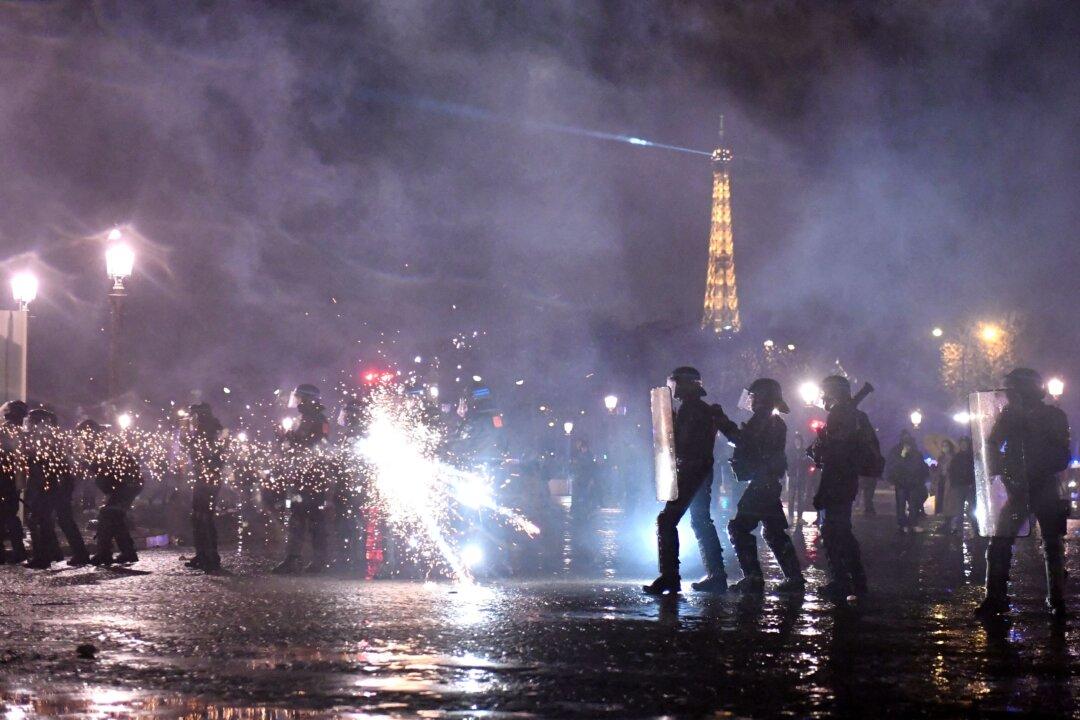Protests erupted across France on March 17 after French President Emmanuel Macron’s government invoked a special constitutional power allowing him to push through controversial pension reforms that raise the retirement age from 62 to 64.
Thousands of people gathered in the capital Paris after French Prime Minister Elisabeth Borne announced the use of Article 49.3—which allows the government to pass a bill without a vote by lawmakers—to push the pensions reform bill through.




